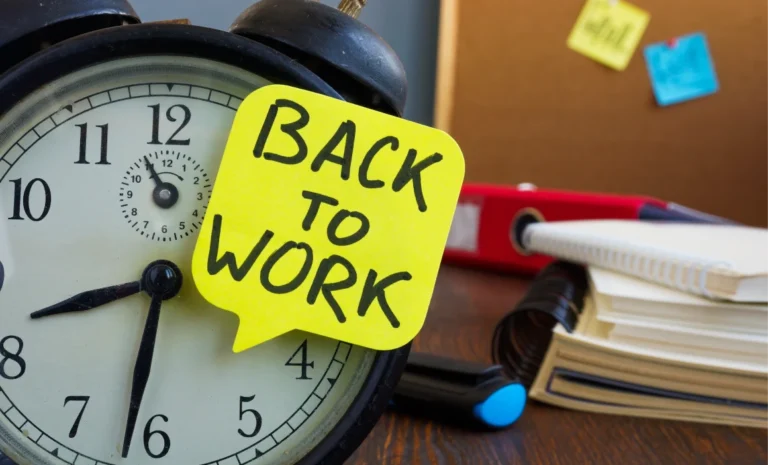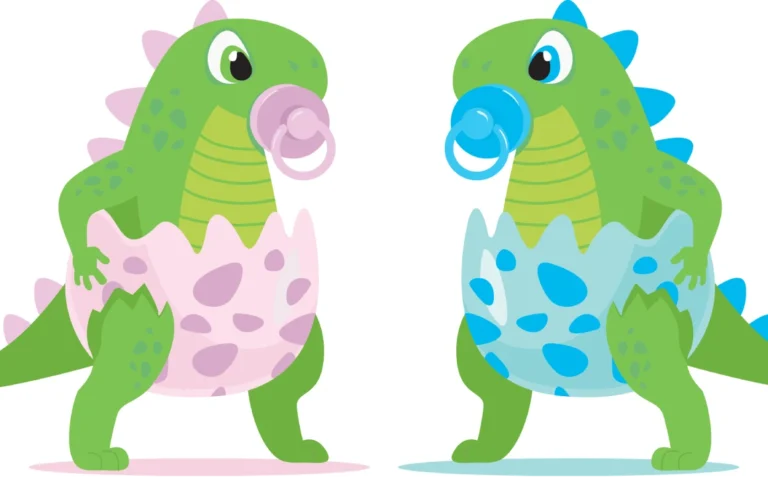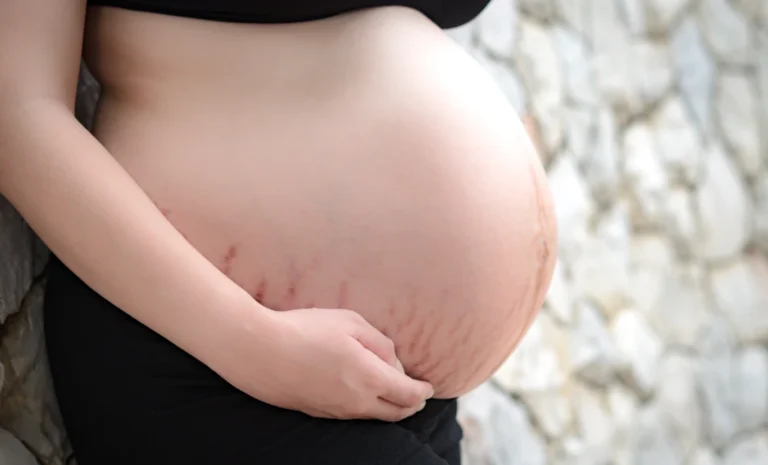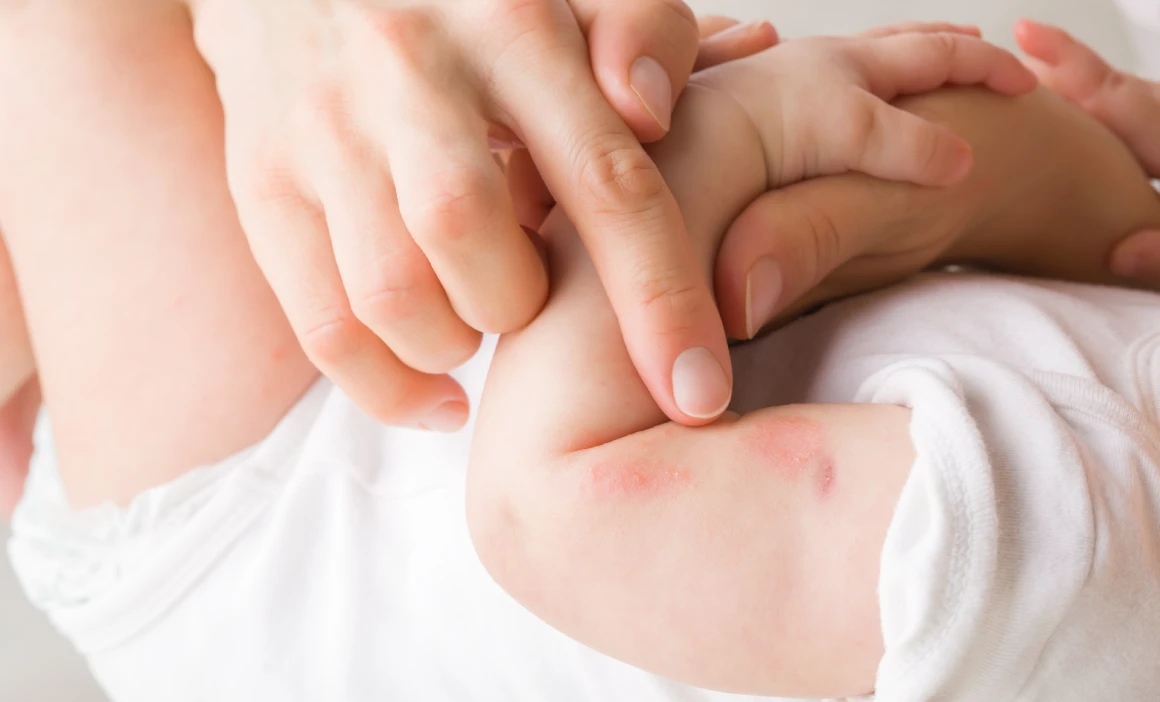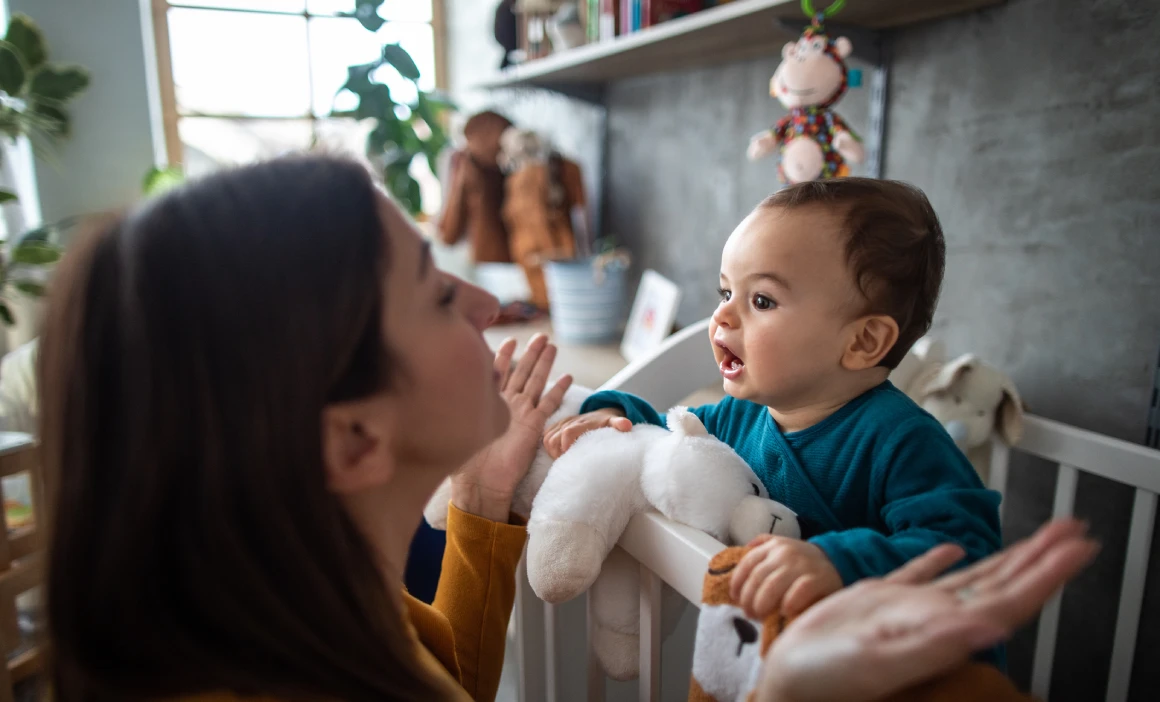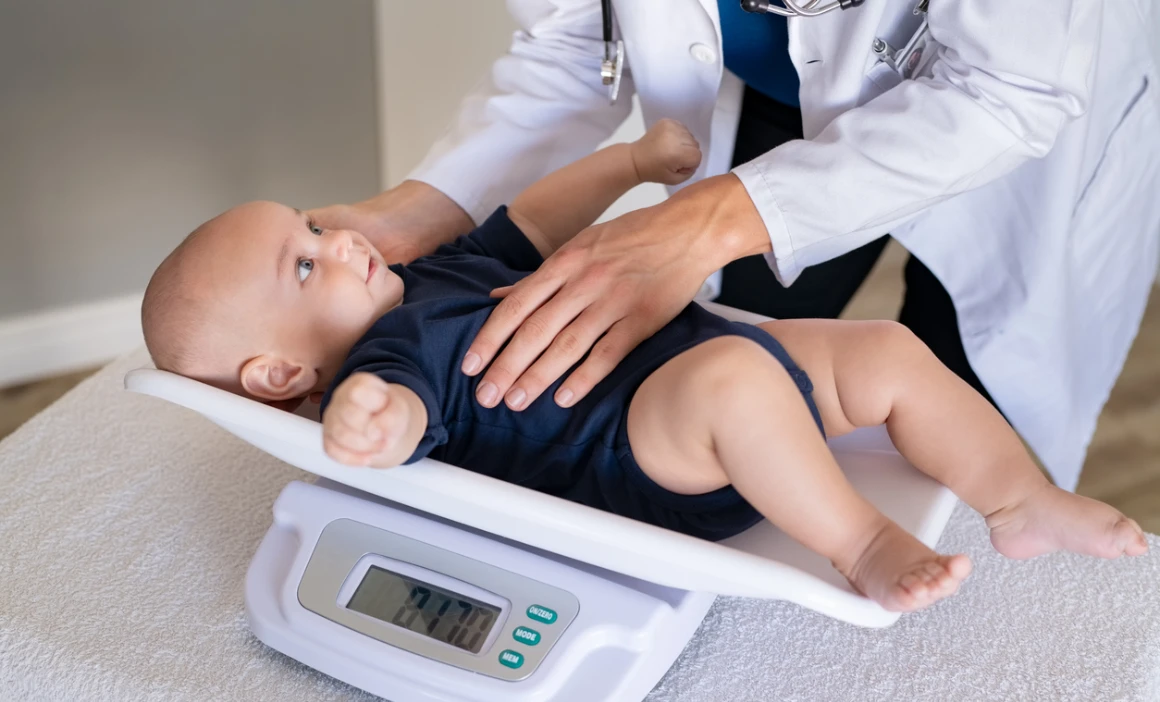
Twelve Months of Wonder: A Closer Look at Your Baby’s First Year of Development
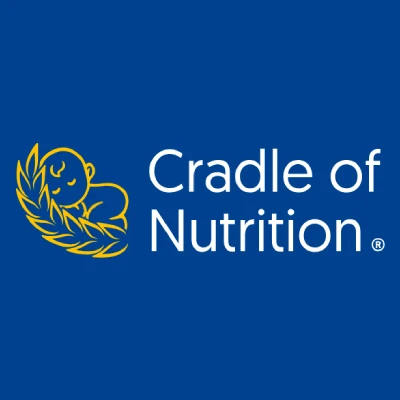
Cradle of Nutrition
- 5 minutes read
The first year of a child’s life is a profound period of transformation, a time when the seeds of future personality, movement, and communication are sown. It is a year of extraordinary changes, one that seems almost surreal as it unfolds—where tiny, fragile beings evolve from their first cries into purposeful, curious explorers of the world around them. In this remarkable journey, every gesture, every glance, and every sound is part of the intricate dance that forms the foundation of who they will become.
Have you ever caught yourself, in the quiet of a moment, marveling at the way your baby gazes up at you as if they were seeing you for the very first time? Or noticed how their tiny fingers reach out for the world, as if eager to explore what lies beyond their reach? These moments, while simple, are filled with magic that makes the journey of the first year feel both timeless and unique. As parents, caregivers, and loved ones, we often find ourselves in awe of these early months, watching our babies grow at an astonishing pace. But beneath this rapid development lies a complex symphony of biological, neurological, and emotional growth that is anything but ordinary. In this post, we’ll delve deeper into the nuanced layers of this remarkable transformation, offering you a closer look at the subtle milestones that make the first year an unforgettable chapter in your baby’s life.
The Newborn Stage (0-1 Month): A Time of Rapid Change
In the first month, your newborn is adapting to the world outside the womb. Their primary focus is on survival, but they’re already showing signs of growth.
- Physical Growth: At birth, babies typically weigh between 2.5 – 4 kg. In the first few days after birth, it’s normal for babies to lose about 5-10% of their birth weight, but they should regain it by around 2 weeks after birth. Afterward, babies will typically gain about 150–200 grams per week. In addition to gaining weight, they will grow in length by about 2.5 cm per month. During this time, you’ll likely notice your baby’s body changing rapidly before your eyes.
- Motor Skills: While your baby’s movements are mostly reflexive (like sucking and grasping), these are crucial for early development. They are still learning how to control their muscles.
- Sensation & Communication: Newborns respond to sounds and light, though their vision is still blurry. They rely heavily on touch, and their first attempts at communication may be through crying.
- Supporting Tips: For helpful tips on how to support your baby through this crucial stage, from tummy time to fostering early bonding, check out our guide on How to Support Your Baby’s Development in the First Year.
2-3 Months: Starting to Connect with the World
By the second and third months, your baby will begin to show more deliberate behaviors and start engaging with their environment.
- Physical Growth: Your baby will continue to gain weight rapidly, typically doubling their birth weight by around 5 months. You’ll also notice them growing in length at a steady pace.
- Motor Skills: Around this time, babies will start holding their heads up during tummy time and may begin to roll over. These movements are the early signs of their motor development.
- Social Development: The real magic happens in this period as your baby begins to recognize and respond to familiar faces and voices. You may start seeing those first beautiful social smiles.
4-6 Months: Increasing Exploration and Coordination
The second half of your baby’s first year brings even more exciting milestones. At this stage, they’re eager to explore and interact with the world.
- Physical Growth: By now, your baby will have doubled their birth weight and grown in length by about 10-15 cm. They will also sleep more regularly, transitioning to a more predictable sleep cycle (14–16 hours a day!).
- Motor Skills: Babies are now able to sit up with support and may begin reaching for and grabbing toys. Their hand-eye coordination improves, allowing them to interact with objects in new ways.
- Feeding: If you haven’t already, now’s the time to start introducing solid foods to complement breast milk or formula. Watch as your baby explores new tastes and textures.
- Communication: At this stage, your baby may start making cooing and babbling sounds. These are their first attempts at verbal communication, setting the stage for their future language development.
7-9 Months: Gaining Independence and Building Skills
As your baby nears the 7-9 month mark, they will become even more curious and begin asserting their independence.
- Physical Growth: Your baby’s physical strength continues to improve, and they may begin to sit up on their own, as well as pulling themselves up to stand with support.
- Motor Skills: This is the stage where babies often start crawling, making them mobile and eager to explore their surroundings. Some may even take their first steps with help!
- Communication: You’ll notice your baby making a wider range of sounds, including consonant sounds like “ba-ba” or “da-da.” They’re starting to understand that their sounds can communicate meaning and are learning to respond to simple commands.
10-12 Months: Walking, Talking, and Growing in Confidence
The final stretch of your baby’s first year is marked by rapid growth and development, and you may start seeing your little one truly blossom.
- Physical Growth: By 12 months, your baby will typically weigh between 9–12 kg and grow to 70–75 cm in height. They may be walking with help or even standing on their own—what an achievement!
- Motor Skills: If they haven’t already, many babies will start walking during this period. They’re also refining their fine motor skills, like picking up small objects with their fingers and manipulating toys.
- Communication: By the time they turn one, your baby might say their first words like “mama” or “dada” and will likely understand simple instructions like “come here.” They’re becoming more socially aware and may react to the emotions of others around them.
- Emotional Development: As your baby approaches their first birthday, they’ll form stronger emotional connections with family members and may even show signs of separation anxiety when you leave the room.
Remember, every baby grows at their own pace, so embrace their unique journey without comparing too much to others. The first year is full of “wow” moments—first steps, sweet coos, and countless milestones. Take time to savor each one, knowing that the whirlwind of growth and change is shaping your baby for the exciting path ahead.
For further guidance on how to support your baby through each of these stages, don’t forget to check out our detailed post on How to Support Your Baby’s Development in the First Year.
By Erika Barabás
References:
1. Berk, L. E. (2013). Child Development (9th ed.). Pearson.
A comprehensive textbook that covers various stages of development, including cognitive, emotional, and physical milestones during infancy.
2. Santrock, J. W. (2018). Child Development (15th ed.). McGraw-Hill Education.
Provides a detailed exploration of the milestones and developmental processes that occur during the first year of life.
3. Parker, K. (2014). Understanding Child Development. Sage Publications.
